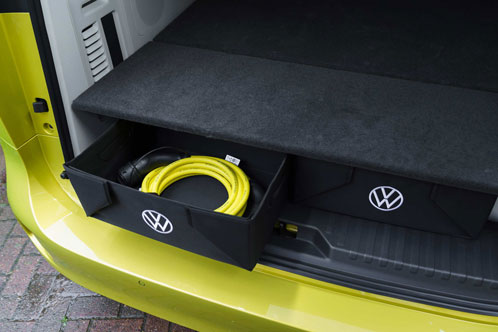Being deprived of your mobile phone when thieves strike may be bad enough, but victims sometimes lose much more than just their device.
A quarter (26%) of mobile theft victims also experienced fraudulent transactions, according to a new survey, with the average loss put at £2,711.
Around one in nine (11%) people say they have been targeted by thieves for their mobile phones in the past five years, research from money insights provider Intuit Credit Karma found.
With mobile phones often being the main way people carry out their routine financial admin, some devices could be a treasure trove for thieves.
By Vicky Shaw, PA Personal Finance Correspondent

More than four-fifths (82%) of smartphone users surveyed have at least one banking or financial app on their phone.
Nearly two-fifths (38%) admit to storing sensitive information on their device, such as passwords and pin codes.
In other phone security “faux pas”, a fifth (20%) have passwords and pin codes stored in the contacts section of their mobile phone, according to the survey by Opinium of 2,000 adults across the UK in March.
Despite crucial information being stored on phones, over a fifth (22%) of people claim that if they lost access to their phone, they wouldn’t know their online banking logins.
Akansha Nath, general manager (international) at Intuit Credit Karma, says: “Experiencing mobile phone theft is a distressing situation which can be exacerbated if the perpetrator then uses the phone to access sensitive financial information.
“Therefore, safeguarding any banking information stored on your phone is crucial. While preventing phone theft isn’t always possible, there are measures you can implement to secure your sensitive banking information in these unfortunate situations.”
.

Here are Nath’s tips on how to keep financial information safe on your phone and stopping personal details becoming a goldmine for thieves:
1. Remember your passwords or add extra security
“It can be easy to just save your passwords to your ‘notes’ app, but it is also easy for a thief to access these notes when stealing your phone which then allows them to gain access to all of your online accounts, including your banking apps,” says Nath.
She suggests: “Try your best to remember your passwords and don’t keep them stored on your phone. If you struggle to remember these passwords consider using a reputable password manager application to securely store and manage your passwords.”
She adds: “Choose a password manager with features like two-factor authentication and strong encryption to enhance security further.”
2. Take care when using Wi-Fi and Bluetooth
Nath warns that hackers can exploit unsecured connections.
She suggests: “Stick to trusted networks and devices or use a virtual private network (VPN) when accessing sensitive information over public networks.”
3. Set up passcodes and biometric locks
“Always lock your phone with a passcode, pattern, or biometric authentication like fingerprint or facial recognition,” says Nath.
“This prevents unauthorised access to your device, reducing the risk of someone accessing your sensitive information if your phone is lost or stolen.”
4. Be mindful of your surroundings
Being aware of the physical situation you’re in – and the potential threats from your immediate location – can be as important as being mindful of the technology you’re using.
Nath says: “When using your phone in public, be aware of your surroundings and avoid displaying it unnecessarily.
“Keep your phone securely in your pocket, bag, or hand, and refrain from leaving it unattended on tables or countertops. Being vigilant can deter opportunistic thieves and reduce the risk of your phone being snatched or grabbed by someone passing by.
“If you need to use your phone in a crowded area, try to find a safe and secluded spot away from prying eyes to minimise the chance of theft or unwanted access to your device.”
5. Monitor your credit
Keeping up-to-date with your credit reports can help you to spot if someone has tried to use your financial details fraudulently, perhaps by taking out a loan in your name.
Credit monitoring tools will send you notifications if there are any changes in how you have used your credit.
If you think your details have been compromised, or you spot a transaction on your account that doesn’t look right, tell your bank immediately, as well as the police.
In addition to Nath’s tips, it’s worth bearing in mind that many banks have also signed up to an anti-fraud phone call service.
If someone believes another person is trying to trick them into handing over money or personal details, they can hang up and call 159 to speak directly to their bank.
Those taking part in the 159 scheme include Bank of Scotland, Barclays, Co-operative Bank, First Direct, Halifax, HSBC, Lloyds Bank, Metro Bank, Monzo, Nationwide Building Society, NatWest, Royal Bank of Scotland, Santander, Starling Bank, Tide, TSB and Ulster Bank.
To help keep your mobile safe, consumer group Which? also suggests making sure that devices are kept up-to-date with security patches for new vulnerabilities, and steering clear of out-of-date, unsupported mobiles.
Which? also suggests adding a unique pin to your sim card, registering for Google’s Find My Device or Apple’s Find My iPhone, and disabling preview notifications. These flash up messages even when your phone is locked.
Another simple tip from the consumer group is to try to keep bank cards separate from your phone – as the two combined could make it much easier for a thief to pass security checks. Many banks have options to immediately freeze cards in their apps.
Finally, don’t forget to check your social media as personal details on online profiles could also give thieves clues to your passwords or answers to security questions.
.




















































